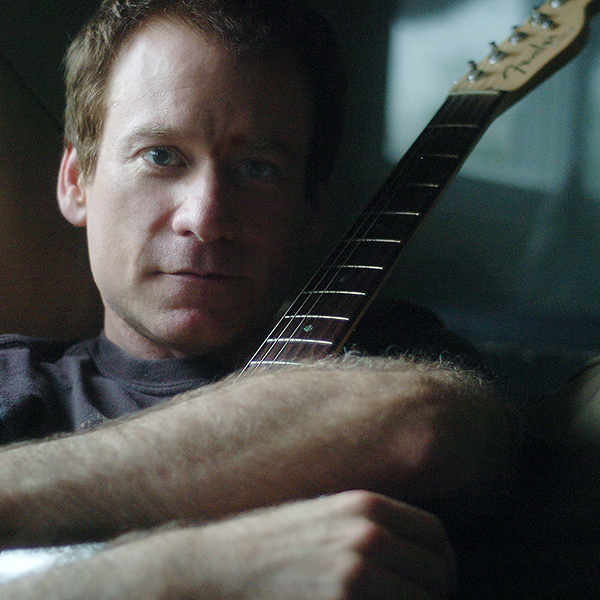by Clay Mills
Dec 24, 2024

Hey SongTown! Over the years, I’ve heard a lot of advice given to aspiring songwriters, and while some of it is gold, most of it can lead you down the wrong path. Today, let’s dive into some of the bad songwriting advice that can actually hurt new writers, and I’ll share what I’ve learned from years in the trenches as a pro songwriter.
1. “Write Only When You’re Inspired”
One of the biggest myths I hear is that you should only write when you’re inspired. I fell into this trap early on, waiting for some magical muse to strike before I’d put pen to paper. The problem? Life doesn’t hand you inspiration on a silver platter every day.
- Professional songwriters don’t wait for inspiration. We show up and write regularly.
- Imagine writing with a hit artist and saying, “Sorry, I’m not inspired today.” You’d never get asked back!
Desmond Child, one of the greats, has written over 4,000 songs. That level of productivity doesn’t happen by waiting for a magical moment—it’s about putting in the work. Inspiration often meets you halfway when you’re already at your desk, guitar in hand.
2. “Every Good Song Needs a Bridge”
Another piece of advice that can derail your process is the idea that every song must have a bridge. Guess what? It doesn’t. My first publisher told me something I live by: “Don’t build a bridge if there’s no river to cross.”
- Ask yourself: Is there something I need to say that hasn’t been said yet? If not, skip the bridge.
- Alternatives: Add a solo, repeat the chorus with a twist, or build into a breakdown and back to a full chorus.
From a musical perspective, adding too many sections—like verses, pre-choruses, choruses, and then a bridge—can overwhelm your listener. Keep your song focused and purposeful. Trends in music also shift. For example:
- In pop music, bridges have been scarce over the last few years.
- In country music, they’ve made a slight comeback.
The key? Be intentional. Don’t add a bridge just because someone told you to.
3. “Count Every Syllable”
Some people get so hung up on syllable counting that it drains the life out of their songs. Yes, it’s important that your lyrics fit your melody, but obsessing over exact syllable counts can make your writing feel robotic.
- Think about Taylor Swift’s “Shake It Off”:
- “I stay out too late / (Got) nothing in my brain.”
- The five-note melodic pattern is consistent, but there are occasional pickups (extra notes) that add natural emotion and flow. In the above line the word “got” is a quick pickup note that adds an extra syllable but doesn’t destroy the hookiness of the pattern.
- Don’t sacrifice emotional impact for the sake of rigid structure. If a pickup note or ghost note improves the feel of the line, go for it.

Pro Tip: Focus on patterns and emotional flow rather than obsessing over syllable counts. Make sure your melodies remain catchy and coherent, but allow for flexibility.
4. “Great Writers Don’t Need Co-Writers”
There’s a myth floating around that “real” songwriters should write all their songs alone. I’ve seen comments online criticizing songs with multiple co-writers, but let me tell you—collaboration is at the heart of professional songwriting.
- Writing alone helps you stay in touch with your voice and develop your ideas.
- Co-writing, however, brings fresh perspectives and sparks creativity in ways you might not achieve solo.
Personally, I’ll sometimes bring a strong idea to a co-write. I might have written it alone, but sharing it with collaborators often takes it to another level. Look at today’s hit records. Whether it’s a solo-written masterpiece or a team effort, what matters is the song’s impact, not the number of writers involved.
5. “You Have to Play Live to Be a Songwriter”
Early in my career, people told me I had to play live at venues like The Bluebird or The Listening Room to succeed as a songwriter. So, I gave it a shot. Spoiler alert: I didn’t enjoy playing songs no one in the audience knew. I decide my path would be to focus 100% on writing and I’d be back down the road to play shows again when I had some well know songs to perform.
Here’s what I’ve learned:
- Every songwriter’s journey is unique.
- You don’t have to perform live to be successful.
If performing inspires you and helps you connect with your music, go for it. But if it’s not your strength, focus on the writing itself. For me, the time I would’ve spent playing open mics was better spent honing my craft and creating songs that mattered.
Key Takeaways for Aspiring Songwriters
Let’s recap the bad advice we’ve covered and what you should do instead:
Don’t: Wait for Inspiration.
Do: Show up and write regularly. The muse will meet you halfway.
Don’t: Add a Bridge to Every Song.
Do: Use a bridge only if it serves the song’s purpose.
Don’t: Obsess Over Syllable Counts.
Do: Focus on emotion and maintaining melodic flow.
Don’t: Dismiss Co-Writing.
Do: Write alone and collaborate to find the right balance for your creativity.
Don’t: Believe You Have to Perform Live.
Do: Follow the path that works for you, whether it’s performing or focusing solely on writing.
Final Thoughts
Songwriting is an art and a craft. It’s easy to fall into the trap of following advice that sounds authoritative but doesn’t align with your journey. The truth is, there’s no one-size-fits-all formula for success in songwriting. What works for one person may not work for another.
As a pro songwriter, I’ve learned to stay open to advice but always evaluate whether it serves my process. And that’s my advice to you: Find what works for you. Write often, be intentional with your choices, and don’t be afraid to break the “rules” if it makes your song better.
Thanks for stopping by. Until next time, keep writing and stay inspired!
Write On! Clay
share
Write Better Songs Faster
Songwriting Success is Clay & Marty's 10-day video series that will help you level-up your songs and finish them faster. Enter your email address to get started!



